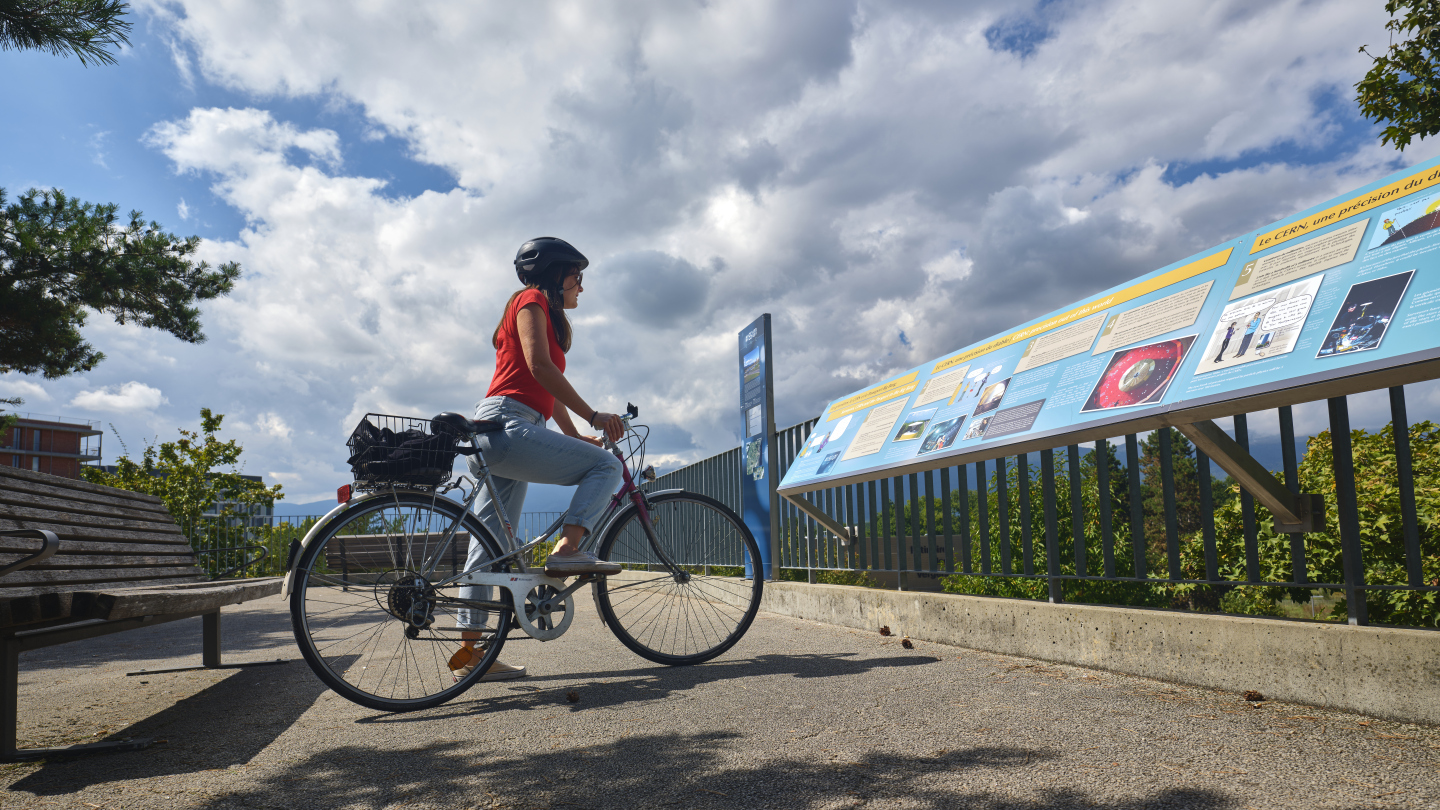Are ugly quarks the same as beauty antiquarks? Can neutrinos be used as an anti-mole system? If you don’t know the answers to these fascinating questions, then it’s high time you jumped on your bike and got your Passport to the Big Bang. This booklet, brimming with fun puzzles, is also the route-map for the cycle trail of the same name. The Passport to the Big Bang connects various interactive mini-exhibitions located in front of the CERN sites around the countryside in the border region between Geneva and France. Each exhibition explains an aspect of CERN’s research and technologies, provides a video that can be watched through a telescope and sets a riddle that must be solved in order to complete the “LHC Mission”. A map shows the waymarked routes that can be taken between the platforms.
The Passport to the Big Bang is ten years old, so it’s a good opportunity to take a closer look at this scientific discovery trail, launched by CERN in an effort to communicate on its activities and provide an additional tourist attraction in the local region. CERN has 15 sites scattered around the Geneva-France border region. “We realised that people living nearby these sites had no idea about what was going on behind the fences,” recalls Corinne Pralavorio, a member of CERN’s communication team who founded the project. “So the idea behind the Passport to the Big Bang was to enable people to discover the incredible truth behind CERN’s research without ever needing to have an access card.“
Local authorities and institutions were involved in developing the trail, notably for the waymarking of the 54 kilometres of cycle paths interconnecting the platforms. “The aim was to develop the project hand-in-hand with the local communities because, apart from being a science lab, CERN is part of the cultural fabric and tourist landscape of the region,” Corinne Pralavorio adds. The communes and the tourist offices take care of the upkeep of the cycle paths and help promote the trail.
This year, a new website with new functionalities has been added. “You can get help in navigating around the trail using an interactive map, a GPX file, or with a mobile app connected to the maps.cern website,” explains Mélissa Samson, who has been making improvements to the trail. In addition to the “LHC Mission”, visitors can also take part in the “LHC Geocaches” treasure hunt.
To mark the tenth anniversary of the Passport to the Big Bang, visitors who manage to complete the “LHC Mission” will receive a special edition of the winner’s certificate together with a gift (available only at the CERN Reception). Hurry while stocks last!
You can pick up your Passport to the Big Bang in town halls (Mairies), tourist offices and at the CERN Reception, or download one from the dedicated website.
See the cern.ch/passeport-big-bang for more information.

